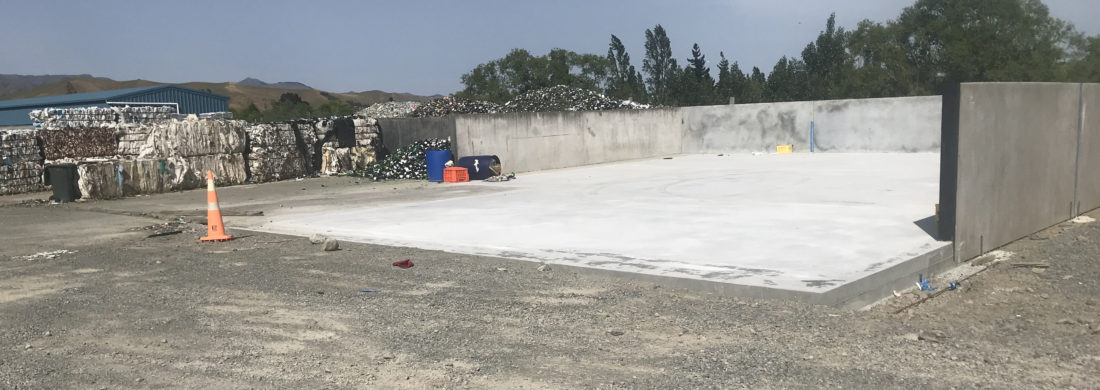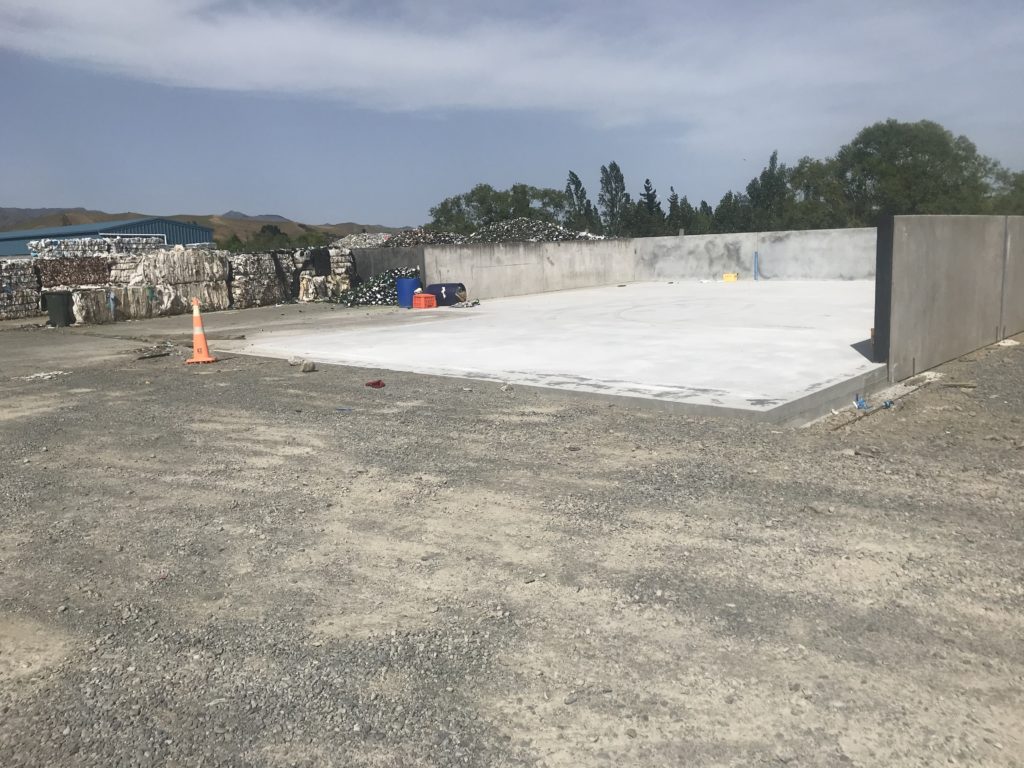
Grant boosts Marlborough’s glass recycling

The Blenheim Resource Recovery Centre has nearly doubled its glass recycling capabilities, thanks in part to a $15,000 grant from the Glass Packaging Forum.
The Marlborough District Council funded the remaining $50,000 to construct a concrete storage bunker and concrete pad for storing recycled glass – just in time for the peak festive season.
Council Solid Waste Manager Alec McNeil says the ability to store recycled glass in its three different colours (clear, green, brown) makes it more valuable as a recyclable material. “The additional storage capacity for glass will ensure that the quality of cullet (recycled glass) being returned to O-I New Zealand (in Auckland) for processing is not compromised,” he says.
O-I New Zealand is the country’s only container glass manufacturer and uses recycled glass to make new bottles. Cullet must be sorted into clear, green and brown before it can be used to make new glass bottles.
Alec explained the centre needed to be upgraded due to changes in the transport system which takes the glass from Marlborough to Auckland. Previously the bunkers would become over full during peak periods, such as summer holidays.
However, by increasing the bunker size by 80%, this should no longer be an issue, he says.
Glass Packaging Forum Scheme Manager Dominic Salmon says the centre plays an important role in getting cullet from the South Island to Auckland. “Funding projects like this, which result in improving the quality and quantity of glass available for recycling is a main objective of the GPF,” he says.
The GPF has help fund a number of projects in Marlborough, including rural recycling containers in Seddon, Oyster Bay, Okiwi Bay, and Awatere Valley, as well as the new recycling hub at Havelock Marina.
Funding for grants comes from the GPF’s Government-accredited voluntary product stewardship scheme. Over 100 member brands contribute to the scheme based on the glass they put in to the market, Dominic says.
“They are taking responsibility for their products at the end of life by making it easier and more efficient to recycle it. Glass is infinitely recyclable right here in New Zealand.”


